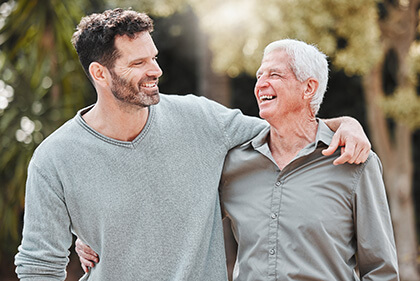New Jersey Detox Centers for Drug & Alcohol Addiction
Detox Centers in New Jersey
Burlington Comprehensive Counseling

Another Door Opens Recovery Center

Hackensack Meridian Health Riverview Medical Center

Behavioral Crossroads

Straight and Narrow Passaic

The Discovery Institute

VA New Jersey Health Care System East Orange VA Medical Center

Serenity at Summit New Jersey

Stress Care of New Jersey Manalapan

Freedom House – Admin Offices

My Fathers House

South Jersey Drug Treatment Center
The Healing Center – Cherry Hill

Full of Life Recovery Center
Princeton House Behavioral Health – Inpatient Princeton

Level Up Treatment Lawrenceville

Seacrest Recovery Center

CFC Recovery
Center For Network Therapy West Orange
First Step Counseling Services on Wernik
Choosing a Drug Detox Center That Meets Your Needs
Detox is a critical first stage of addiction treatment, allowing you to remove harmful substances from your body before recovery begins. Detoxing on your own can be dangerous, so it’s important to undergo this process with the support and supervision of a trusted provider. The right detox center will ensure your safety and stability, prioritize your comfort, and minimize your relapse risk as you move forward.
Inpatient
Inpatient detox facilities are best for individuals with acute withdrawal symptoms, severe addictions, or co-occurring conditions. They offer 24/7 care and monitoring to ensure a smooth transition to recovery.
Outpatient
Outpatient detox centers allow you to attend daytime detox or MAT appointments and return home at night. Outpatient treatment is best for individuals with mild withdrawal symptoms or limited time for rehab.
Medication Assisted Treatment
Medication-assisted treatment (MAT) uses FDA approved medications to alleviate discomfort, curb cravings, and improve treatment outcomes. It can begin during detox and continue as needed to create a foundation for long-term recovery. MAT combines medication with therapy to treat the physical and mental aspects of addiction.
Drug and alcohol detox centers in New Jersey come in all shapes and sizes, and finding the right one for your needs can take careful consideration.

How to Pay for Drug and Alcohol Detox
Everyone deserves access to a safe, effective treatment program that can help them optimize their health as they begin recovery. Finding a reputable, affordable provider might seem difficult, but there are resources that can help lower your cost of care.
There are many ways to find affordable detox treatment that fits your needs:
- Private health insurance
- Medicare or Medicaid
- TRICARE or military insurance
- Financial aid and payment plans
- Sliding payment scale
- Low cost outpatient or MAT options
Many private health insurance plans offer complete or partial funding for detox treatment. Some centers also offer free or low cost treatment, depending on your needs. You can reach out to the detox center directly to see if they offer financial assistance, payment plans, or sliding fee scale discounts, which adjust your costs based on your ability to pay.

